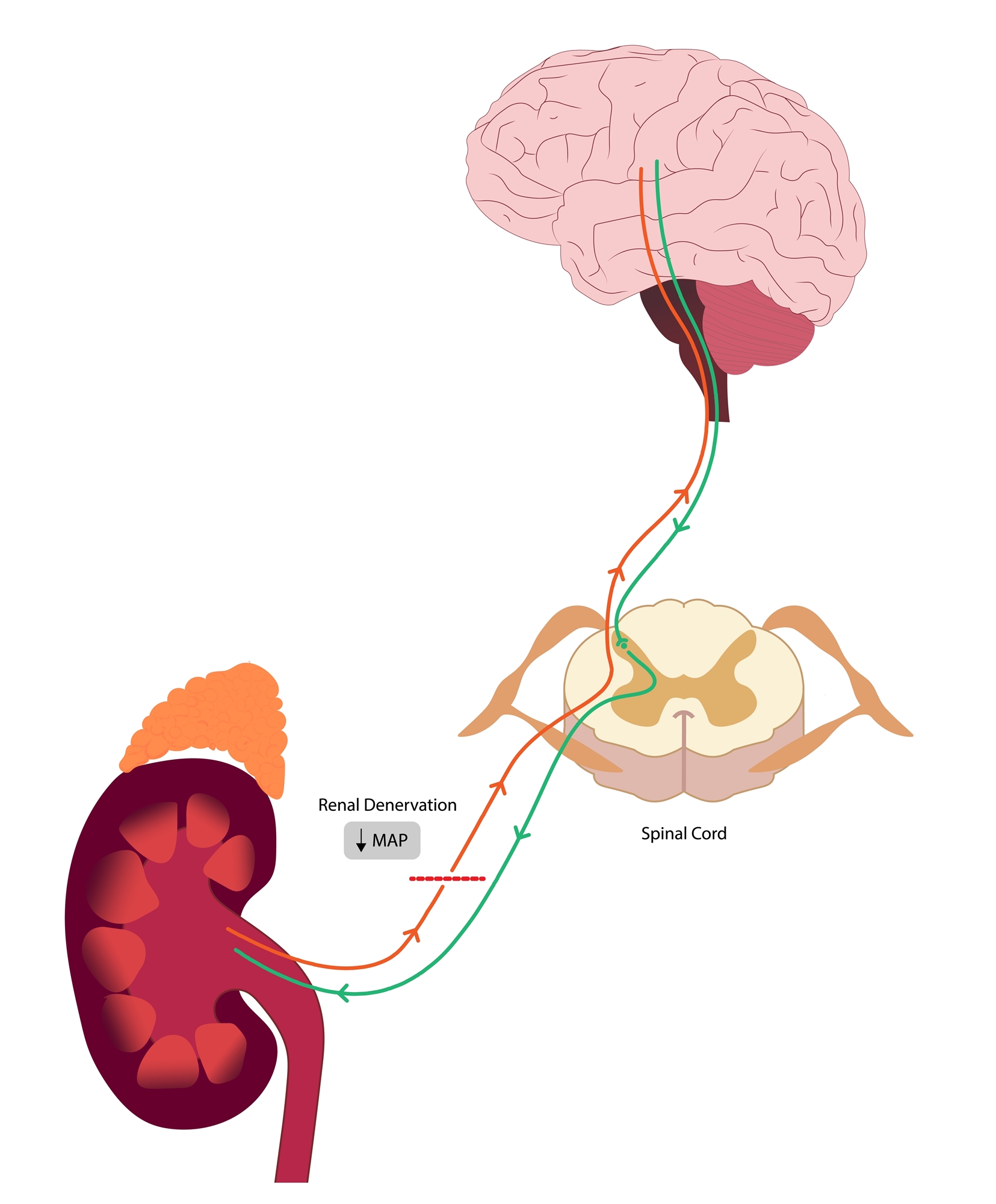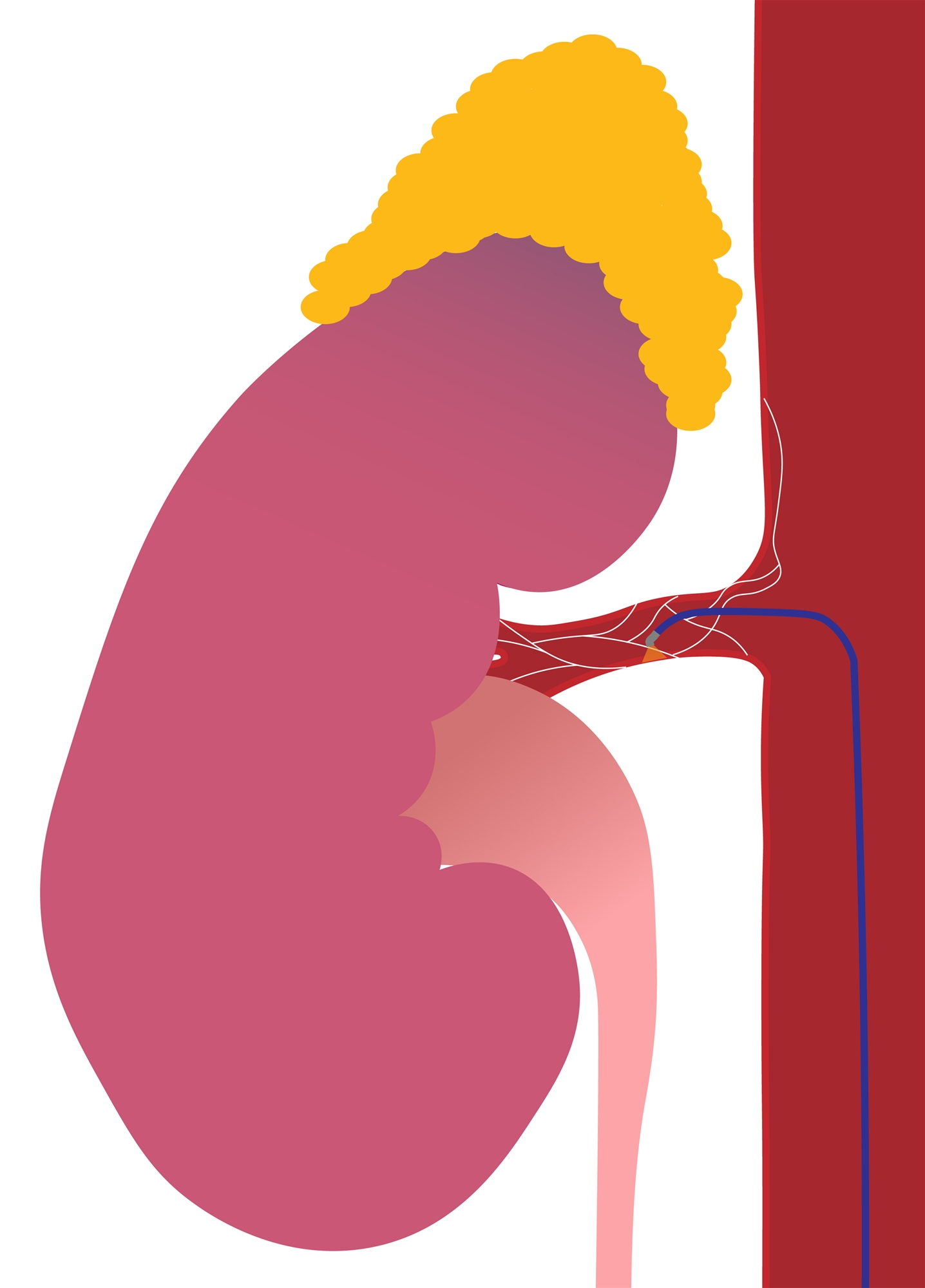What is “Resistant”hypertension?
Patients take 3 or more types of anti-hypertensives but the blood pressure is still higher than 130/80 mmHg.
How to treat resistant hypertension?
- Medicinal Treatment
- Adopting multiple or high dosage of medication of consolidated treatment.
- The flaw is the likely increase of adverse effects from the medicine and could lead to unforeseeable drug-drug interaction. Moreover if the patients fail to comply with medical order, the effect of medicinal treatment could be limited.
- Non-Medicinal Treatment
- Latest treatment “Renal Denervation (RDN).
- CMUH has successfully completed Renal Denervation procedures in the past few years.


Q & A for Renal Denervation (RDN Treatment )
- Q: Would the patient’s renal function be normal after the procedure?
- A: Long-term clinical trials reveal that (HTN1&2) the renal function remained normal after receiving RDN treatment without any complication. The successful cases of renal transplantation also proved that renal denervation did not impair renal function. In fact, denervation itself helped lowering the blood pressure in these patients, thereby protecting the heart, kidney and blood vessels as well as other organs to prevent the health problems caused by hypertension.
- Q: Is the procedure uncomfortable?
- A: The patients remain conscious during the entire procedure but can still feel mild pain. The wound for treatment will undergo local anesthesia and patients may receive pain-killer if necessary. When the catheter enters the body, the patient may feel minor pulling like sensation and no painful sensation.
- Q: How do the physicians confirm the catheter is placed on the correct position?
- A: The physician will apply “fluorescence microscopy” technique: The physician will inject the contrast media into the renal artery of the patient via the catheter before conducting the treatment. Under the support of X-ray technology, renal artery will be clearly demonstrated on the monitor so the physician can control the position of the instrument inside the body during the treatment.
- Q: Will the procedure leave any implant inside the patient’s body?
- A: The entire procedure does not involve any implant.
- Q: How long is the procedure?
- A: The entire procedure lasts for about 40 ~ 60 minutes.
- Q: When can the patient restore daily activities after the procedure?
- A: Please consult with your attending physician. In general, patients can gradually restore daily activities within a short period of time after the procedure.
- Q: Can the patient stop taking anti-hypertensive drug without prescription after the treatment?
- A: The attending physician will discuss with the patient for the medicininal prescription after the treatment. Remember to consult your doctor before making any decision for medicine suspension or change of prescription.
- Q: Is the surgery covered by the National Health Insurance in Taiwan?
- A: Currently the National Health Insurance does not cover this surgery and the patients will need to pay at self-expense.
- For any question, please schedule for the outpatient clinic with Department of Cardiology and a physician will explain everything to you.

